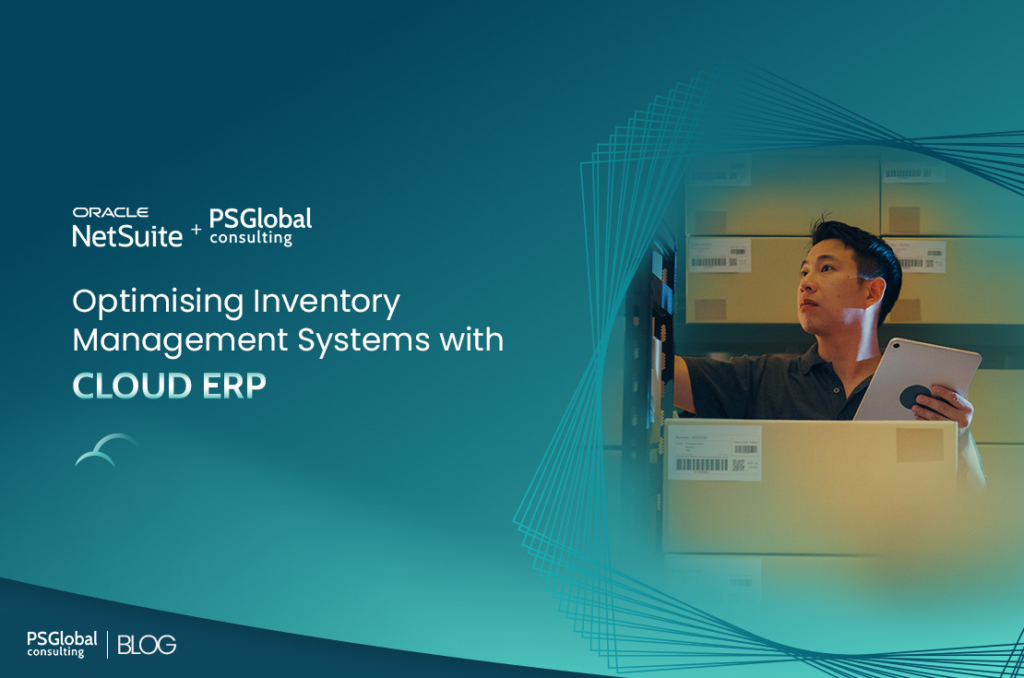Introduction
An effective inventory management system is vital for any modern business aiming to streamline workflows, maintain optimal stock levels, and drive profits.
Cloud-based ERP solutions enable access to powerful tools that can transform an organisation’s ability to track inventory, handle supply chain logistics, and optimise inventory management.
This article explores how a cloud inventory management system enhances efficiency, visibility, and scalability, and why it’s essential for retailers, distributors, and small businesses alike.
Understanding Cloud-Based Inventory Management
A cloud-based inventory management system stores all inventory, warehouse, and supply chain data on secure remote servers accessible across devices.
Unlike manual spreadsheets or on-premises solutions that can be time-consuming and error-prone, cloud-based platforms offer real-time inventory updates, robust integration with business applications, and centralised management for all-in-one inventory control. Businesses can track inventory in real time, optimise ordering processes, and minimise spoilage or excess inventory.
Key Features of Cloud Inventory Management
Real-Time Visibility
With connected data, you can get real-time updates on sales, purchases, and order fulfilment, helping you avoid stockouts or overstock scenarios. This improves decision-making, ensures the right products are available at the right time, and helps track supply chain performance.
Automation
Modern ERP solutions automate inventory tracking and stock replenishment, reducing manual errors and the need for tedious stock-taking.
Automation helps streamline workflows, from purchase orders and demand forecasting to stock alerts and multi-location management. This significantly increases supply chain efficiency and reduces time-consuming processes for both retailers and distributors.
Analytics
With advanced analytics and AI-powered forecasting, businesses gain accurate data for understanding inventory valuation, reorder points, and order trends. Cloud-based systems provide real-time analytics, enabling managers to make informed decisions, optimise inventory levels, and maximise ROI.
Analytics tools integrate seamlessly with accounting software such as Microsoft Dynamics or QuickBooks, providing comprehensive reports and performance dashboards.
Integration
Integration is at the heart of a successful inventory management solution. A cloud ERP solution integrates with major accounting, e-commerce, and logistics platforms, allowing businesses to manage warehouse operations, import supplier data, and handle order fulfilment across multiple sales channels. This reduces manual data entry, enhances workflow, and lets you customise processes as needed.
Benefits of Implementing a Cloud-ERP to Handle Inventory
Improved Efficiency
A cloud-ERP-fuelled inventory management system helps businesses streamline operations by automating inventory tracking, enabling real-time stock updates, and minimising spreadsheet use.
The system supports scalable operations by dealing with multi-location warehouses, enabling quick responses to demand changes and supply chain disruptions. This all-in-one management solution helps businesses streamline order processing and manage warehouse activities, improving efficiency at every level.
Enhanced Visibility
Real-time inventory visibility is critical for managing inventory effectively. Cloud-based inventory management software delivers live data and centralised insights so companies can monitor stock levels in real time, track supply chain movements, and forecast demand with greater accuracy.
This level of visibility supports effective inventory management by reducing the risk of overstock or stockouts and ensures efficient order fulfilment.
Cost Savings
Switching to a cloud-based inventory management system helps reduce manual labour, IT maintenance, and costly errors.
Automated stock updates and integration with accounting tools mean less time spent on repetitive, time-consuming tasks, leading to significant cost savings. Businesses only pay for what they need, customising their ERP solution as operations grow, making it ideal for both small businesses and multi-location enterprise environments.
Scalability
A cloud ERP solution is inherently scalable, supporting businesses as they grow. Whether you’re a small retailer expanding across multiple locations or a distributor managing raw material and finished goods in various warehouses, the system adapts to increased demand, supplier networks, and new business applications without significant investment in infrastructure or custom IT solutions. This flexibility helps businesses maintain optimal stock levels, adapt quickly to market changes, and maximise ROI.
Conclusion
Implementing a cloud-based inventory management system is a transformative step for businesses seeking to improve efficiency, enhance real-time visibility, and boost their bottom line.
By leveraging automation, analytics, and integration, companies can streamline workflows, reduce manual errors, and get real-time insights across the supply chain.
A cloud ERP offers inventory management capabilities that ensure businesses maintain accurate data and effective inventory control. Cloud ERPs position organisations to scale and succeed in the digital age, no matter their size or sector.



